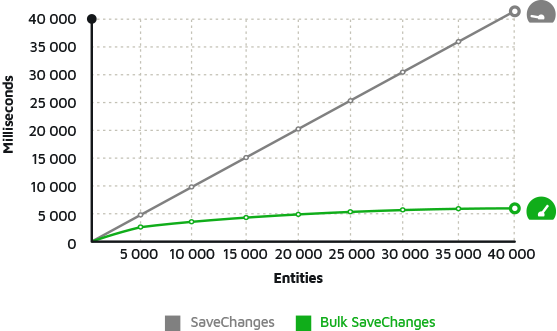Entity Framework Lazy Loading Discover How to Load Entities on Demand
In Lazy loading, an entity or collection of entities is automatically loaded from the database when a property referring to that entity/entities is accessed for the first time.
- Lazy loading means delaying the loading of related data until you specifically request it.
- The related data is transparently loaded from the database when the navigation property is accessed.
- It is enabled by default in Entity Framework, and you don't need to do anything.
In the following example, the 'Author' entity contains the collection of Books. The context first loads the author entity data from the database, and then it will load the collection of books when we access the Books navigation property.
using (var context = new BookStore()) { var author = context.Authors .FirstOrDefault(); var books = author.Books; }
When the above code is executed, it will result in two SQL queries. In the first query, it will fetch the first author from the database.
SELECT TOP (1)
[c].[AuthorId] AS [AuthorId],
[c].[Name] AS [Name]
FROM [dbo].[Authors] AS [c]
When the navigation property Books in Author class is accessed, it will send the following query to fetch all the books related to that author.
SELECT
[Extent1].[Id] AS [Id],
[Extent1].[Title] AS [Title],
[Extent1].[AuthorId] AS [AuthorId]
FROM [dbo].[Books] AS [Extent1]
WHERE [Extent1].[AuthorId] = @EntityKeyValue1
-- EntityKeyValue1: '1' (Type = Int32, IsNullable = false)
Disable Lazy Loading
Lazy loading is enabled by default, but you can disable lazy loading for a particular entity or a context.
- Do not make a navigation property virtual, if you want to turn off lazy loading for a particular property.
- If you want to turn off lazy loading for all entities in the context, set its configuration property to false.
public BookStore() : base() { this.Configuration.LazyLoadingEnabled = false; }
ZZZ Projects
